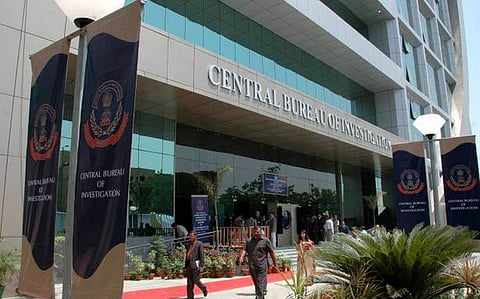

The Rajasthan Government, in the midst of political crisis in the State, has revoked all previous general consent orders issued to the Central Investigation Agency (CBI) under the 'Delhi Special Police Establishment (DSPE) Act, 1946'.
As a result of the revocation of the general consent, CBI, which comes under the Central Government, will now need to obtain prior consent of the Rajasthan Government on a case-to-case basis for investigation of offenses in that State.
The notification issued by the Rajasthan Government has, however, made it clear that all consents accorded earlier by it in specific individual cases shall continue to remain valid.
The State Government's notification also makes reference to a letter of 1990 whereby it had refused to accord such general consent to the CBI and the same was conveyed to the Central Government.
"This incorporates the formal stand of the State Government that Government of Rajasthan does not accord general consent under Section 6 of the DSPE Act, 1946 of the investigation of any offences under Section 3 of the said Act by the CBI and each case", the State Government's notification says.
Section 3 of the DSPE Act provides that the Central Government may, by notification, specify the offences or classes of offences, which are to be investigated by the Delhi Special Police Establishment, also known as CBI.
Further, Section 5 of the DSPE Act confers power on the Central Government to extend to any area the powers and jurisdiction of the CBI for the investigation of any offences or classes of offences specified in a notification under section 3.
However, the power under Section 5 of the DSPE Act is subject to Section 6, which provides for the consent of State Government to exercise of powers and jurisdiction by the CBI under Section 5 read with Section 3. Section 6 of the DSPE Act reads as follows-
"Nothing contained in section 5 shall be deemed to enable any member of the Delhi Special Police Establishment to exercise powers and jurisdiction in any area in [a State, not being a Union territory or railway area], without the consent of the Government of that State.]".
Therefore, in view of the revocation of the general consent, the CBI will be required to obtain prior consent of the Rajasthan Government on a case-to-case basis to be able to carry out raids, make arrests or register FIRs in that State.
Probing into an alleged plot to topple the Rajasthan government, the Special Operations Group (SOG) of the state has served a notice on Union Minister Gajendra Singh Shekhawat requiring him to appear before the investigation officer in connection with the audio tapes, in one of which the minister is allegedly heard during a purported conversation to bring down the Rajasthan government.
Rajasthan High Court is also hearing petitions filed by 19 MLAs of Congress including Sachin Pilot challenging disqualification notices issued by the Speaker of the Rajasthan Legislative Assembly. MLAs plea asserts that not attending two party meetings can't tantamount to fall within the purview of Tenth Schedule of the Constitution.
Further, it is contended that Sachin Pilot had issued a statement that he has no intention of leaving Congress party.
Appearing for MLAs, senior advocate Harish Salve contended, "Issuing disqualification notice for inner party dissent is a violation of freedom of speech of the legislator." He added that whip couldn't be issued when the assembly is not in session.
On the other hand, senior advocate Abhishek Manu Singhvi, on behalf of the Speaker, argued that the Courts have no jurisdiction over the disqualification of any member. He added that until the speaker decides, the Courts have no jurisdiction.